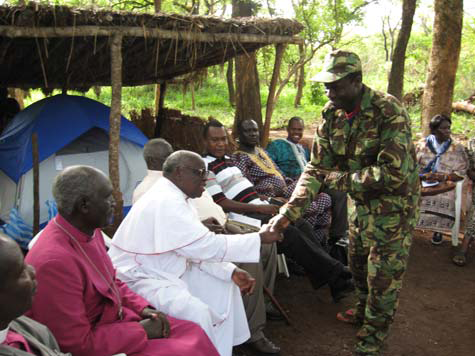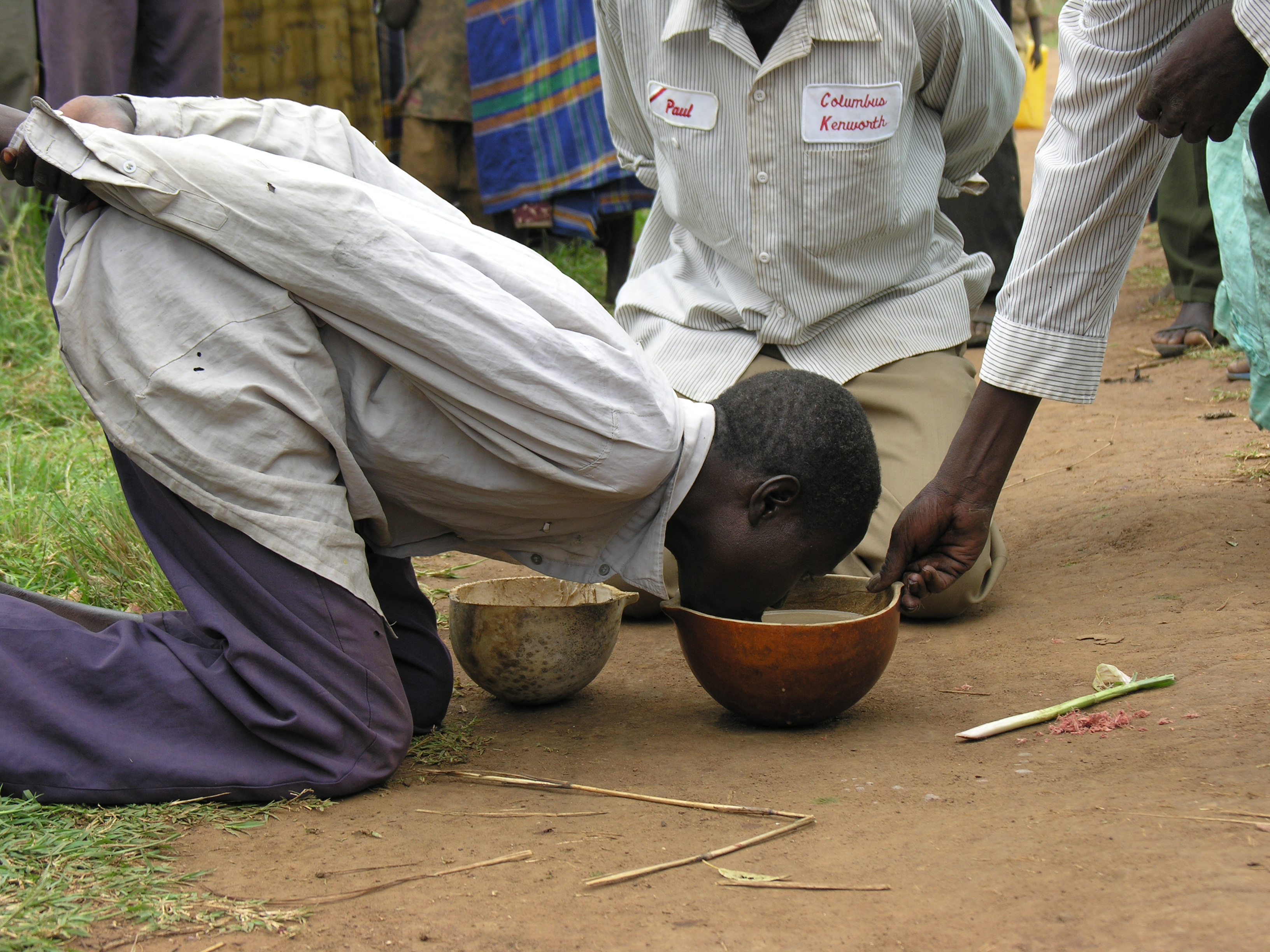The Justice and Reconciliation Project (JRP) would like to applaud President Yoweri Kaguta Museveni’s acknowledgement of crimes committed by the National Resistance Army (NRA) in northern Uganda.
Official acknowledgement of atrocities committed during war is one of the most important factors in the aftermath of armed conflict. It is not only necessary for the healing of painful memories of victims who suffered war crimes at the hands of perpetrators, but it is also an important pre-requisite for implementing reparative programs for war affected communities and survivors. An official acknowledgement is made even more significant if it comes from a high ranking government official such as the head of state.
On 26th January 2014, during the NRM anniversary celebrations in Mayuge district, President Yoweri Kaguta Museveni publicly acknowledged that NRA soldiers had committed crimes in northern Uganda during the late 1980s and early 1990s in their attempt to pacify the region of rebel activity following the NRA’s capture of power in 1986. The story was carried in the news headlines of all Uganda’s local newspapers on Monday 27th January 2014.
This acknowledgement has been long overdue given that northern Uganda has been peaceful for close to six years now, following the permanent relocation of the LRA to Central African Republic (CAR) in 2008. In this period, civil society organizations, religious leaders, political leaders, and the general public in northern Uganda have consistently called upon the government to acknowledge its role in the commission of war crimes in northern Uganda to no avail.
While the government implemented some programs for war victims and survivors, this official acknowledgement and apology was always not forthcoming. In fact some high ranking government officials had fallen into the habit of blatantly and unashamedly stating that the NRA did not commit war crimes in northern Uganda.
War crimes in northern Uganda have generally been wholly attributed to the LRA. When the International Criminal Court (ICC) launched investigations into the Ugandan situation in 2004, for instance, it ended up issuing indictments for only LRA commanders for war crimes and crimes against humanity, and let the government perpetrators off the hook. This was despite that it was a known fact that NRA soldiers committed numerous atrocities in northern Uganda during the late 1980s and early 1990s.
So President Yoweri Kaguta Museveni’s public acknowledgment of such crimes is welcome and must be applauded. Not many leaders have the courage to stand up and admit past wrongs. Throughout the course of history, public acknowledgement of crimes by state leaders has always been difficult. A case in point can be taken from Australia where it took the Australian Government close to 100 years to apologize to indigenous Aborigines for crimes committed against them in what has been termed the “Stolen Generation” or “Stolen Children”. In this case, the Australian Government from as far back as 1909 had made it a practice to forcefully take children from indigenous Aboriginal families presumably in a move to educate them. Many of these children ended up being permanently separated from the families.On 13 February 2008 the Government, through then Prime Minister Kevin Rudd MP, moved a motion of Apology to Australia’s Indigenous Peoples in Australia’s Parliament. The government also made reparations in form of scholarships and funds for various community activities to the Aboriginal community.
In his acknowledgement, the President admitted to crimes such as the suffocation of 69 civilians in a railway wagon in Mukura village in 1989, and the suffocation and rape of civilians in Burcoro village in April 1991. All these crimes have been documented by the Justice and Reconciliation Project (JRP) and are publicly accessible on our website.
President Museveni also admitted that new crimes such as the massacre of civilians in Kanyum village, and the raiding of cattle in Nwoya district were coming to light. The president blamed the ‘wanainchi’ (local people) for not reporting such crimes.
While President Museveni must be applauded for this public announcement, he stands to be criticized in two areas.
First, the above crimes are not the only crimes that were committed in northern Uganda. Many other examples of acts committed by the NRA have been brought to the attention of the government through various channels such as research reports.
In Palabek Sub-County for example, the 32nd Battalion of the NRA is reported to have led killings of several civilians under the command of a one Captain Abiriga. The 32nd battalion carried out numerous horrific incidences including: the killing of six men in Ayuu Alali village school on 1 February 1991, and the execution of seven suspected rebel collaborators in Ayuu Anaka village on 12 April 1992.
On 19 August 1986, in Namokora Sub-County, the 35th Battalion of NRA is also said to have led killings of 71 men and women. These men and women were accused of being rebel collaborators or having plans to oust the new NRA government that had just come to power through a guerrilla coup.
Numerous other incidents have been documented in places such as Odek, Pabbo, Mucwini and other places in northern Uganda.
Secondly, it is grossly misleading, disingenuous and deceptive for President Museveni to say that the reason he did not know about such crimes was because they were never reported. These incidents have been mentioned time and again by civil society activists, religious leaders, political leaders and other opinion leaders in northern Uganda but the government has turned a deaf ear to all these pleas. Many have been documented by CSOs such as JRP.
Nevertheless the acknowledgement by President Yoweri Museveni still remains significant, and must be considered a starting point on the long road to reconciling northern Uganda. A number of things need to be undertaken in moving forward.
First, there is need for full disclosure and acknowledgement about atrocities that happened in northern Uganda under the NRM regime. There is need for full public investigation of crimes committed by NRA soldiers, and disclosure of responsible officials to pave way for their punishment. It is appalling and disgraceful that despite the numerous atrocities known to have been committed by NRA soldiers in northern Uganda, only 23 NRA officers have, according to the president, ever been brought to book for acts he described as “indiscipline” and “misbehavior”
More needs to be done to promote accountability for what are not mere acts of indiscipline, but internationally recognised war crimes . Otherwise the full scale of NRA killings will never be known, and will continue to be revealed through half-truths and revelations such as those made by President Yoweri Museveni.
Secondly, acknowledgment of atrocities in northern Uganda must not only be limited to physical killings of civilians by NRA soldiers. It is also important to acknowledge other forms of human sufferings and dehumanizing acts committed by NRA soldiers.
NRA soldiers are known to have committed horrendous and abominable acts such as defecating in water pots and food containers of people in northern Uganda, and defecating in the mouths of their cattle simply to dehumanize and humiliate the people.
Another horrendous act was the practice of ‘tek-gungu’ or male rape that was perpetrated by ethnic Banyankole soldiers against Acholi men as an act of humiliation. Women and girls were also raped in places such as Burcoro and deliberately infected with the HIV/AIDs virus. It is no wonder that northern Uganda today has one of the highest prevalence of HIV/AIDs.
Arbitrary arrests were also common and took place on a massive scale with people being rounded up in large numbers for screening and spending hours in inhumane conditions at the screening centers.
The encampment and confinement of people in internally displaced persons camps is also a crime that needs to be acknowledged. The years that the Acholi people spent in the IDP camps as the NRM government failed to defeat the LRA were painful years that have taken a severe toll upon the Acholi people. As a result of this confinement we have a generation of youth that has grown up with little regard for Acholi cultural values such as hard work and morality. It is the reason behind increased acts such as prostitution and theft.
All these atrocities can only be brought to light if the government institutes an inquiry into the conflict in northern Uganda with the deliberate aim of establishing and understanding the full range of atrocities that occurred.
Thirdly, acknowledgement of crimes in northern Uganda must be accompanied by official apologies, conducted in a dignified manner, at official ceremonies deliberately organized and attended by victims’ representatives. President Museveni’s acknowledgement on 26th January 2014 took place in Mayuge District as the NRM celebrated 28 years in power. The location and occasion were both not conducive and relevant to people in northern Uganda. We in northern Uganda continue to hope for the day when President Museveni will organize a function in northern Uganda specifically for the purpose of issuing an apology to the victims and survivors of the conflict, and handing this apology in written form to key leaders of the people. This will be a milestone in the history of northern Uganda.
Finally, acknowledgements and apologies need to be accompanied by reparative action. In Acholi culture reconciliation is not deemed to be complete unless the perpetrator has paid symbolic compensation to the victim. President Museveni expressed willingness to engage in acts of Mato Oput (reconciliation) with victims and survivors, and compensate them for the losses suffered. The President’s olive branch of reconciliation is welcome and must be applauded. It remains to be seen whether it will be fulfilled.



